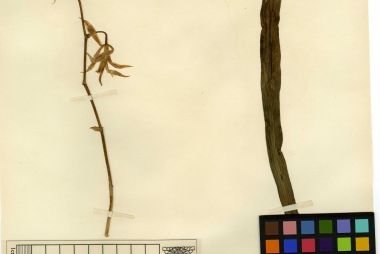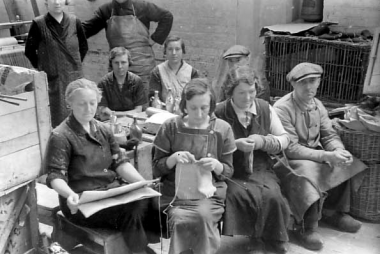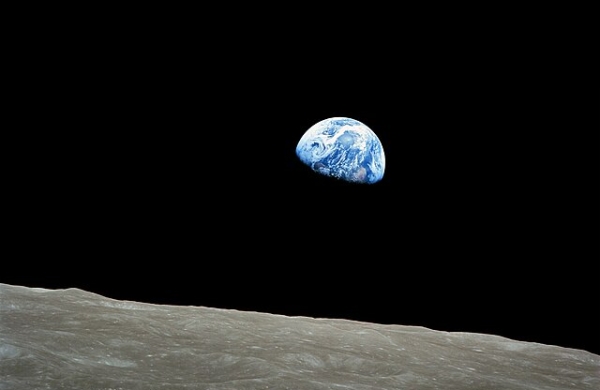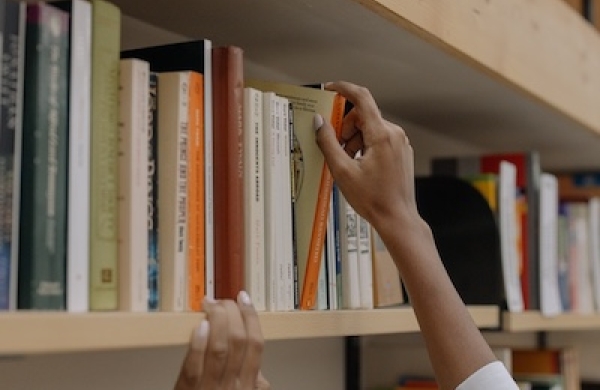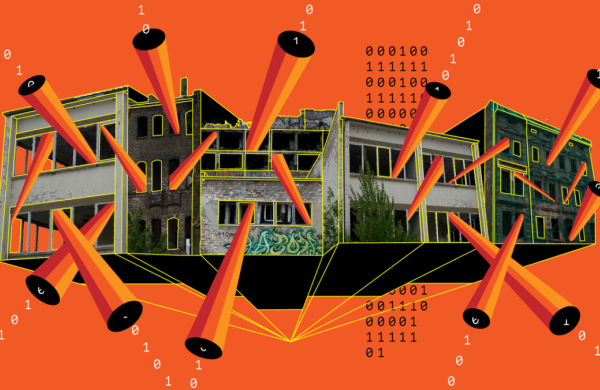47th IALHI Conference: Heritage of Social Movements in a Global Perspective: Collecting and Preservation of Sources, Helsinki, 7-10 September 2016
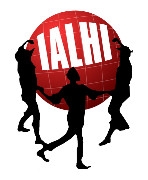
47th Annual Conference of the International Association of Labour History Institutions (IALHI)
September 7 – 10, 2016, Helsinki, Finland
Heritage of Social Movements in a Global Perspective: Collection and Preservation of Sources
While we live in the post-digital digital age, and digital has become the norm in memory institutions by now, social history curators, often the ultimate guardians of the unsolicited past still face the same questions of collecting, preserving the materials of labour and social movements. This multifaceted heritage is not only endangered by obsolete media, fast changing technologies and limited digital preservation capacities, but its transnational and hybrid nature offers the utmost challenge of consolidating and reconnecting documentary legacies around the globe. As the definition of historical resources has extended to new categories such as digital, digitized collections or so-called Intangible Cultural History as proposed and practiced by UNESCO, including oral traditions, social practices and craft skills the global perspective raises new problems on the conditions of storing and preserving in the Global South: warm and humid climate, or the often rather limited access to expensive digital infrastructures increases the gap between professional benchmarking and praxis driven solutions by social history curators working in the field.
At the 47th Annual IALHI Conference we will discuss the many different aspects of preserving the legacies of the past, in addition to collecting, recording, acquiring social history documentation and the changing way in which we do this:
- Paper issues remain: what emerging strategies exist to preserve analogue material long term, especially in the regions with high humidity?
- How can we authenticate testimonies of the past? How should oral history interviews be conducted? What kind of ethical issues need to be addressed during the interviewing process and during the reuse of the material? In general, how can we address the ephemeral nature of audiovisual materials documenting social memory?
- What kind of challenges are there in documenting and adapting new formats and media in a digital environment?
- How to deal with social media as a specific source of political and social communication? What are the best practices to preserve data on social media platforms, user generated content and crowdsourcing data?
- What about immaterial cultural artefacts like the songs, traditions or practices of the labour movement all over the world?
- What types of social history collections are endangered by their obsolete media?
We as IALHI are also interested in exploring more general questions:
- What are the unintended consequences of pervasive digital media on research?
- What are the effects of technology dependency on access to information and creation of knowledge?
CONFERENCE PROGRAMME
Heritage of Social Movements in a Global Perspective: Collecting and Preservation of Sources
Wednesday, September 7
17.00 - 19.00 Reception and registration of participants at the Labour Archives (Työväen Arkisto). Guided tour to the Labour Archives and its collections. (Sörnäisten rantatie 25, Helsinki)
Thursday, September 8
9.30 - 10.00 Coffee and registration of participants at the conference location (Sörnäisten rantatie 23, Helsinki)
10.00 - 10.20 Opening words:
Marjaana Valkonen, Chairman of the Labour Archives Foundation
Prof. Geert van Goethem, AMSAB Institute of Social History
10.20 - 10.30 Historians without borders - an introduction. Erkki Tuomioja, MP, former minister for foreign affairs
10.30 - 12.00 IALHI General Assembly
12.00 - 13.00 Lunch
13.00 - 13.20 Social History Portal and the current Europeana DSI project. Dr. Donald Weber, AMSAB Institute of Social History, and Afelonne Doek, International Institute of Social History
13.20 - 13.40 Session 1:
Vittore Armanni (ITA): Beyond the border: Russian and Soviet collections in Fondazione Giangiacomo Feltrinelli
Massimo Repetto (ITA): Thousand persons who established the Komintern (1919-1923)
13.40 - 13.50 Discussion
13.50 - 14.30 Session 2:
Kazue Enoki (JPN): OISR.ORG and sources for labour history in Japan
Jean-Philippe Legois (FRA): 68 years: a global/local social movement: one travelling exhibition project
Donald Weber (BEL): People's Houses in Europe
Richard Temple (GBR): Labour archives held by the Institute of Commonwealth Studies, University of London.
14.30 - 14.40 Discussion
14.40 - 15.00 Coffee break
15.00 - 15.50 Session 3:
Andreas Marquet (GER): Virtualisation of Wilhelm Sander's correspondence as an example for reusing archival metadata
Alexander J. Schwitanski (GER): Archiving of digitally recorded narrative video interviews
Nina Sjöberg (SWE): Labor gone digital?
Marien van der Heijden (NLD): Collecting 'born digital' archives from major archive creators
Franck Veyron (FRA): French academic consortium 'Archives des mondes contemporains'
15.50 - 16.00 Discussion
19.00 - ... Dinner (self-financed, restaurant to be confirmed later)
Friday, September 9
9.00 - 9.30 Coffee
9.30 - 10.00 Keynote lecture: Historical narratives of five village women in Namibia. Dr. Ellen Ndeshi Namhila,University of Namibia
10.00 - 10.15 Discussion
10.15 - 10.55 Session 1:
Durga Brasad Bhatta & Sushila Mishra Bhatta (NPL): Issues and challenges of 'Kamaiya' liberation movement in Nepal
Andrey Sorokin (RUS): To open the documents of Soviet history and Komintern
10.55 - 11.10 Discussion
11.10 - 12.10 Session 2:
Patrick Auderset (CHE): Collecting and sharing workers' interviews: the Collège du Travail's experience (1978-2016)
Anja Kruke (GER): Oral history as historical and archival task - archiving interviews of tradeunionists for secondary analysis
Pete Pesonen (FIN): Collecting working culture traditions - non-commercial work
12.10 - 12.25 Discussion
12.25 - 13.30 Lunch
13.30 - 14.00 Keynote lecture: The river has a memory, and so do we: struggles for water justice in Mexico. Prof. Anja Nygren, University of Helsinki.
14.00 - 14.15 Discussion
14.15 - 14.30 Coffee
14.30 - 15.10 Session 3:
Julie Demange (FRA): New initiative 'acquisition of digital archives'
Jennifer Eidson (USA): Preserving electronic records from labor union organizations at the University of Maryland
15.10 - 15.25 Discussion
15.25 - 16.00 Conference round-up and conclusions
18.00 - 19.00 Reception hosted by Helsinki city (Empire room, Bock house - Old town hall, Aleksanterinkatu 20, Helsinki)
19.30 - ... Conference dinner (Seurahuone, Kaivokatu 12, Helsinki)
Saturday, September 10
Visit to the renewed Lenin museum and the Finnish labour museum Werstas in Tampere. Bus transportation to Tampere and back.
8.30 Departure from the central railway station (Kaivokatu 1, Helsinki)
10.45 Arrival to Tampere
10.45 - 11.45 Visit to the Lenin museum (Hämeenpuisto 28, Tampere)
11.45 - 12.00 Bus transportation to the Finnish labour museum Werstas (Väinö Linnan aukio 8, Tampere)
12.00 - 13.00 Lunch and a presentation of the museum
13.00 - 14.00 Free time to explore Werstas on your own
14.00 Departure back to Helsinki
16.00 Bus stops at the Helsinki-Vantaa airport
16.30 Arrival to the central railway station
Praktische info
- IALHI: 3752 euro
- Tyovaen Arkisto: ca. 8000 euro (through private sponsorships)
Andere projecten
Als koepelorganisatie verenigt ICAM (International Confederation of Architectural Museums) architectuurmusea en -archiefcentra wereldwijd, die streven ...
Jean Linden (1817-1898) trok als Belgische botanicus in 1835 naar Zuid-Amerika. Hij verbleef onder meer ...
Hoewel er niks alledaagser is dan de lunchpauze weten we er nog weinig over. Amsab-ISG ...

